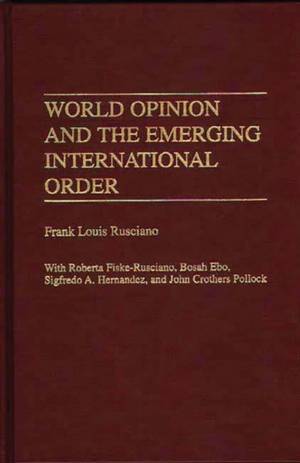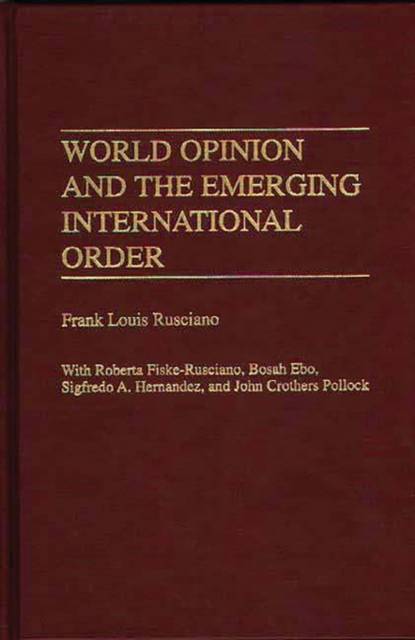
En raison d'une grêve chez bpost, votre commande pourrait être retardée. Vous avez besoin d’un livre rapidement ? Nos magasins vous accueillent à bras ouverts !
- Retrait gratuit dans votre magasin Club
- 7.000.000 titres dans notre catalogue
- Payer en toute sécurité
- Toujours un magasin près de chez vous
En raison de la grêve chez bpost, votre commande pourrait être retardée. Vous avez besoin d’un livre rapidement ? Nos magasins vous accueillent à bras ouverts !
- Retrait gratuit dans votre magasin Club
- 7.000.0000 titres dans notre catalogue
- Payer en toute sécurité
- Toujours un magasin près de chez vous
Description
This is the first systematic book-length examination of the meaning and influence of world opinion. Using media content analyses, survey data, documentary evidence, and comparative theory, it analyzes how world opinion influences the construction of national identity, the growth of global markets, and the emergence of an imagined international community to rival the influence of the nation-state.
Using newspaper content analyses, survey research data, documentary evidence, and comparative theory, this book examines the meaning, influence, and structure of world opinion in the emerging international order. It begins by analyzing the construction of individual identity in the presence of the Other and then describes the influence of opinion processes upon this construction at all levels, including familial, religious, national, and ethnic. Subsequent chapters deal with the effects of a global public on the construction of individual identity and the role of world opinion in this process; the definition of world opinion and its component parts; the effects of world opinion on nations' behavior in times of crisis; the role world opinion plays in the construction of national identity and the manner in which this prompts a resurgence of nationalism in the post-Cold War era; the relationship between world opinion and the global market; the search for an attentive public to link elites and mass publics in world opinion; and the appearance of an imagined international community in the post-Cold War era based around the concept of world opinion. The final chapter discusses the effects of world opinion on our vision of history and evaluates the significance of the nation-state in an international environment increasingly governed by global forces and world public opinion. A major study for researchers, scholars, and students involved with international relations, public opinion, and international communications.Spécifications
Parties prenantes
- Auteur(s) :
- Editeur:
Contenu
- Nombre de pages :
- 208
- Langue:
- Anglais
- Collection :
Caractéristiques
- EAN:
- 9780275954499
- Date de parution :
- 30-11-98
- Format:
- Livre relié
- Format numérique:
- Genaaid
- Dimensions :
- 163 mm x 243 mm
- Poids :
- 485 g

Les avis
Nous publions uniquement les avis qui respectent les conditions requises. Consultez nos conditions pour les avis.






